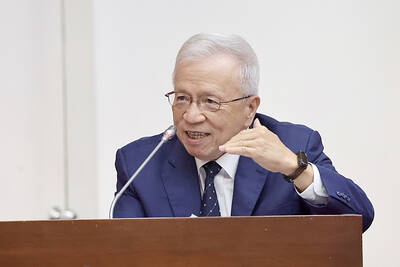Toyota Motor Co plans today to try to undercut suggestions that its electronics systems caused the sudden acceleration problems that led to the recall of more than 8 million vehicles.
The automaker plans an event in which it will seek to debunk a critic who claims faulty gas pedals did not cause the sudden acceleration.
Toyota will aim to duplicate the scenario created by David Gilbert, a professor at Southern Illinois University Carbondale.
Gilbert told Congress on Feb. 23 that he was able to recreate sudden acceleration in a Toyota vehicle by manipulating its electronics.
The company is calling in the director of Stanford University’s Center for Automotive Research to try to refute the claims. Toyota said Stanford professor Chris Gerdes would show that the malfunctions Gilbert produced “are completely unrealistic under real-world conditions and can easily be reproduced on a wide range of vehicles made by other manufacturers.”
Stanford’s Center for Automotive Research is funded by a group of auto companies, including Toyota.
Meanwhile, the president of Mitsubishi Motors did not rule out a future capital tie-up with France’s Peugeot, reports said yesterday.
The two companies announced last week that they had scrapped talks on an ambitious capital tie-up that would have created the world’s sixth-largest auto alliance, after reports of financial discord.
The announcement came after PSA Peugeot chief Philippe Varin and Mitsubishi Motors president Osamu Masuko met at the Geneva Motor Show.
On his return, however, the president of the Japanese maker hinted they may try again, the Nikkei Shimbun and other media said.
“We will not exclude any possibility in the future” if the two firms keep expanding their current alliance, Masuko reportedly said at Narita airport on Saturday when asked about a capital alliance.

JITTERS: Nexperia has a 20 percent market share for chips powering simpler features such as window controls, and changing supply chains could take years European carmakers are looking into ways to scratch components made with parts from China, spooked by deepening geopolitical spats playing out through chipmaker Nexperia BV and Beijing’s export controls on rare earths. To protect operations from trade ructions, several automakers are pushing major suppliers to find permanent alternatives to Chinese semiconductors, people familiar with the matter said. The industry is considering broader changes to its supply chain to adapt to shifting geopolitics, Europe’s main suppliers lobby CLEPA head Matthias Zink said. “We had some indications already — questions like: ‘How can you supply me without this dependency on China?’” Zink, who also

At least US$50 million for the freedom of an Emirati sheikh: That is the king’s ransom paid two weeks ago to militants linked to al-Qaeda who are pushing to topple the Malian government and impose Islamic law. Alongside a crippling fuel blockade, the Group for the Support of Islam and Muslims (JNIM) has made kidnapping wealthy foreigners for a ransom a pillar of its strategy of “economic jihad.” Its goal: Oust the junta, which has struggled to contain Mali’s decade-long insurgency since taking power following back-to-back coups in 2020 and 2021, by scaring away investors and paralyzing the west African country’s economy.

BUST FEARS: While a KMT legislator asked if an AI bubble could affect Taiwan, the DGBAS minister said the sector appears on track to continue growing The local property market has cooled down moderately following a series of credit control measures designed to contain speculation, the central bank said yesterday, while remaining tight-lipped about potential rule relaxations. Lawmakers in a meeting of the legislature’s Finance Committee voiced concerns to central bank officials that the credit control measures have adversely affected the government’s tax income and small and medium-sized property developers, with limited positive effects. Housing prices have been climbing since 2016, even when the central bank imposed its first set of control measures in 2020, Chinese Nationalist Party (KMT) Legislator Lo Ting-wei (羅廷瑋) said. “Since the second half of

AI BOOST: Next year, the cloud and networking product business is expected to remain a key revenue pillar for the company, Hon Hai chairman Young Liu said Manufacturing giant Hon Hai Precision Industry Co (鴻海精密) yesterday posted its best third-quarter profit in the company’s history, backed by strong demand for artificial intelligence (AI) servers. Net profit expanded 17 percent annually to NT$57.67 billion (US$1.86 billion) from NT$44.36 billion, the company said. On a quarterly basis, net profit soared 30 percent from NT$44.36 billion, it said. Hon Hai, which is Apple Inc’s primary iPhone assembler and makes servers powered by Nvidia Corp’s AI accelerators, said earnings per share expanded to NT$4.15 from NT$3.55 a year earlier and NT$3.19 in the second quarter. Gross margin improved to 6.35 percent,